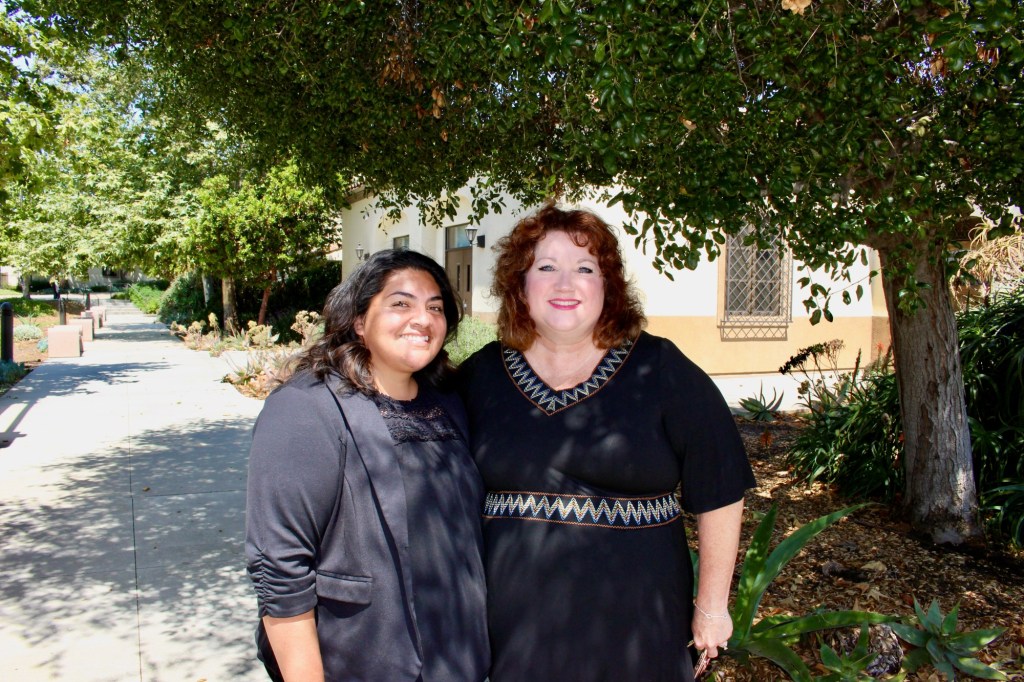Ruby Castro had a hard childhood. Her mother died when she was 9. She lived with various relatives for awhile, but it never felt like home. Later, she was placed in foster care.
But Castro was set on proving she was more than a “poor foster kid” and worked on getting an education even though she was homeless. Years later, Castro felt she wanted to share her story so those in a similar situation could see there is a way out. And she wanted to be part of the way out.
“I decided to tell my story because there are so many children that look just like me and experience a lot of the same things I have experienced,” Castro said. “I believe that the more we talk about hard things, the more we can impact change and inspire others.”
When Castro was 13, a teacher noticed some bruises and asked if she needed help. Ruby was naturally guarded and didn’t trust anyone, but something made her open up. She told her teacher about the abuse, and that started her difficult journey into the foster care system. As hard as it was, Castro said her time in foster care was “a saving grace.”
By the time Castro turned 16, she had spent a lot of time running from her emotional wounds. She got tired of running.
“Adulthood was knocking at my door and I didn’t know how to answer the call,” she said. “That is when I realized that I wanted to do better for myself. I come from a long line of women that have been trapped in a cycle of abuse and poverty. I didn’t want a one-way ticket back to my hometown. I wanted to make it.”
Castro began to focus on school and set her mind on going to college. “I was not sure if I could actually do it,” she said.
Castro attended a community college and transferred to Cal State San Marcos. She got a job at the university’s writing center and managed to get food, but couldn’t afford housing. She carried only a backpack with a few clothes and a hairbrush. She slept at the Sprinter Station stop near the university and she would sleep in the library during the day so she wouldn’t have to sleep outside at night.
“Still, none of that stopped me. I kept going. I kept reminding myself that I could do it and that I was worth it,” Castro said.
When she heard from a school counselor about Casa de Amparo, a San Marcos-based nonprofit that prevents and treats child abuse, she was skeptical.
“I didn’t want to go back into ‘the system’ or anything related to it. but I was desperate,” Castro said. “I was tired of being homeless and things got scary and dangerous at night. I gave them a chance.”
She joined Casa’s New Directions program, which provides housing and life skills training and other services for youths ages 18 to 25 who are transitioning out of the foster care system into independent living.
“They took me off of the street and poured so much encouragement, love and care into me,” she said. “They encouraged me to keep going to school and get my degree. But the biggest thing they did for me was that they gave me a family. For so many years, I would ask Santa for a family and he never brought me one.”
Her mentor at Casa de Amparo, Kathy Karpé, helped Castro turn her life around. Castro trusted her and she became her first strong female role model. When Castro graduated from college, she wasn’t sure who would show up. But Karpe was there.
Castro decided to become an elementary school counselor. “I have a deep passion for creating safe spaces for kids,” she said. “I am a firm believer that if a child feels safe, they can truly access learning and that could help propel them forward. I also became a counselor because I desperately needed a safe adult in my life and I want to be that for them.”
Karpé, CEO of Casa de Amparo, served as director of development during the time Castro was at Casa de Amparo.
“Ruby is not just a success story,” Karpé said. “She’s a symbol of what’s possible. Watching her graduate from our program was like watching hope itself take a victory lap. She doesn’t even realize the depth of her impact. To those of us who’ve dedicated our lives to supporting foster youth, Ruby represents the kind of transformation we dream about. She’s family to me, and she reminds us every day why this work matters.”
